THE STORY OF THE SONG OF ROLAND.
您可以在百度里搜索“National Epics 艾草文学(www.321553.xyz)”查找最新章节!
THE STORY OF THE SONG OF ROLAND.
For full seven years had Charlemagne tarried in Spain, and all the land lay conquered save the city of Saragossa. There, in an orchard, upon a terrace paved with blue marble, sat its king, Marsile, taking counsel with his lords.
"No army have I," said the king; "no people to array against the hosts of the great emperor. Advise me, my lords, what I shall do to save ourselves from disgrace and shame."
The wily Blancandrin, wisest and greatest among the pagans, advanced before him. "Where might cannot prevail, often craft gains the day. My lord, send gifts to mighty Carle. Drive forth a long train of camels; heap many mules with gold; send chariots filled with precious gifts. Advise him that on the day of Saint Michael's feast you will seek him at Aix, and there become a Christian, and his vassal. Yea, even send hostages; my own son shall go, even though he lose his head. Then will Carle depart for France. The day set by you will come, but he will hear naught from us. The hostages' heads will fall. What of it? Better this than for us to lose forever Spain the fair."
The king, pleased with the craft of Blancandrin, dismissed his council, and ordered ten of his fiercest barons to seek Charlemagne at Cordova, bearing the olive-branch, and make the offer suggested by Blancandrin.
Cordova, filled with rich spoils, had been taken, and its surviving inhabitants given the choice of the sword or Christian baptism. Therefore the happy emperor sat at his ease in a wide-spreading orchard. Around him stood Roland, Olivier, Samsun the duke, Anseis, Gefrei d'Anjou, and Gerier. At least fifteen thousand French knights were diverting themselves with different games in the beautiful orchard, where, under a pine-tree, the great King of France sat upon a golden chair. His white hair and flowing white beard added majesty to his already majestic figure, so that the olive-bearing messengers needed not to have great Carle pointed out to them.
The emperor heard the message of Marsile in silence, and dismissing the pagans for the night to a pavilion, called together in council his wisest barons, Duke Ogier, Archbishop Turpin, Gerier, Roland, Olivier, a thousand Franks, among them Ganelon, the step-father of Roland, and laid before them the message of Marsile.
"Rich gifts he offers me, but he demands that I return to France; thither will he follow me, and at Aix will become a Christian and a vassal. A fair promise, but what is in his heart I cannot tell."
After a moment's silence Roland stood forth.
"Sire, have no faith in the words of Marsile. When have we found aught but treachery in the Saracen? For seven years I have been winning victories for you here in Spain. Once before you yielded to such a message as this, from this same Marsile, and lost, in consequence, the heads of your Counts Bazan and Bazile. War on as you have begun. Besiege his city! subdue Saragossa!"
Then strode forth the angry Ganelon. "My king, this young hot-head is a fool; hearken not unto him. Accept the offer of Marsile, and lose no more lives by the foolhardiness of one who cares more for his own glory than for human life."
The voice of the others, among them Duke Naimes, Charlemagne's wisest counsellor and truest vassal, was with Ganelon. The emperor stroked his white beard. "My lords, whom shall we send to meet Marsile at Saragossa?"
"I will go," said Duke Naimes.
"Nay, I cannot spare you from my councils," replied the king.
"I am here!" cried Roland.
"Not you! You are too hot-headed to venture into the court of the enemy!" cried his friend Olivier. "Let me go instead, sire!"
"Nay!" cried the king. "Silence! Not one of the twelve peers sets his foot in the kingdom of the Moors."
"Then let my step-father go," suggested Roland. "No wiser man than he can be found."
"Come forward," said the king, as the Franks murmured assent, "and receive the staff and glove. The Franks have chosen you."
Ganelon rose, wrathful, casting off his fur robe. His eyes were gray, his face fierce, his form noble.
"This is Roland's work. I shall hate him forever, and Olivier, and the twelve peers, because they love him. Ne'er shall I return; full well I know it. If e'er I do, it will be to wreak vengeance on my enemy."
"Go!" said the king. "You have said enough!"
As Ganelon went forward, full of rage, to receive the king's glove, it fell ere he touched it. "A bad omen!" exclaimed the French.
"Sirs, ye shall hear of this!" said Ganelon.
On his way to Saragossa with the legates of Marsile, Ganelon laid the impious plot that was to result in the destruction of Roland and the peers. It saved his life at Saragossa, where Marsile threatened to kill him on reading Charlemagne's message. He explained carefully to the Saracens how the rear guard, left at Roncesvalles under the command of Roland and the twelve peers, could be destroyed by the pagan forces before the knowledge of the battle could reach Charlemagne, and that, with these props of his kingdom gone, the king's power would be so diminished that Marsile could easily hold out against him. Then the traitor hastened back to Cordova, laden with rich gifts.
When Ganelon rode back, the emperor was preparing to return to sweet France. "Barons," said Carle, "whom shall I leave in charge of these deep defiles and narrow passes?"
"My step-son Roland is well able to take the command," said Ganelon; "he your nephew, whom you prize most of all your knights."
Rage filled the hearts of both Roland and Carle; but the word was spoken, and Roland must remain. With him remained the twelve peers, his friends, Olivier, his devoted comrade, the gallant Archbishop Turpin, and twenty thousand valiant knights.
While Charlemagne's army toiled over the terrible gorges and high mountains into Gascony, the emperor, ever grieving over the untimely death his nephew might meet in the defiles of Spain, down came the pagans, who had been gathering on the high mountains and in the murky valleys,—emirs, sons of noble counts were they, brave as the followers of Charlemagne.
When Olivier descried the pagan horde he at once exclaimed,—
"This is the work of Ganelon!"
"Hush!" replied Roland. "He is my step-father. Say no more."
Then Olivier, when from the hill he saw the one hundred thousand Saracens, their helmets bedecked with gold, their shields shining in the sun, besought his friend to sound his horn, the olifant, and summon the king to their aid.
"Never will I so disgrace myself!" exclaimed Roland. "Never shall sweet France be so dishonored. One hundred thousand blows shall I give with my sword, my Durendal, and the Moors will fall and die!"
When Olivier found his pleading vain, he mounted his steed and rode with Roland to the front of the lines.
Long was the fight and terrible. If gallantry and strength sat with the twelve peers and their followers, they were with their opponents as well. No sooner had Roland, or Olivier, or Turpin, or Engelier cleft the body of a Moorish knight down to the saddle, than down fell a Christian, his helmet broken, his hauberk torn by the lance of his dreaded foe. The nephew of Marsile fell by the hand of Roland, who taunted him as he lay in death; Olivier struck down Marsile's brother. "A noble stroke!" cried Roland.
"A baron's stroke!" exclaimed the archbishop, as Samsun pierced the Almazour with his lance and he fell dead. Olivier spurred over the field, crushing the pagans and beating them down with his broken lance.
"Comrade, where is thy sword, thy Halteclere?" called Roland to his friend.
"Here, but I lack time to draw it," replied the doughty Olivier.
More than a thousand blows struck Turpin; the pagans fell by hundreds and by thousands, and over the field lay scattered those who would nevermore see sweet France.
Meanwhile, in France, hail fell and rain; the sky was vivid with lightning bolts. The earth shook, and the land lay in darkness at noonday. None understood the portent. Alas! it was Nature's grief at the death of Count Roland.
When Roland perceived that in spite of their mighty efforts the passes were still filled with heathen knights, and the French ranks were fast thinning, he said to Olivier, "What think you if we call the king?"
"Never!" exclaimed Olivier. "Better death now than shame!"
"If I blow, Carle will hear it now and return. I shall blow my olifant," cried Roland.
"When I begged you to blow it," said Olivier, "you refused, when you could have saved the lives of all of us. You will show no valor if you blow it now."
"Great is the strife," said Roland. "I will blow that Carle may come."
"Then," said Olivier, "if I return to France, I pledge you my word my sister Aude shall never be your wife. Your rashness has been the cause of our destruction. Now you shall die here, and here ends our friendship."
Across the field the archbishop spurred to reconcile the friends. "Carle will come too late to save our lives," said he, "but he will reach the field in time to preserve our mangled bodies and wreak vengeance on our foes."
Roland put his horn to his lips and blew with such force that his temples burst and the crimson blood poured forth from his mouth. Three times he sounded his horn, and each time the sound brought anguish to the heart of Carle, who heard it, riding thirty leagues away. "Our men make battle!" cried he; but this Ganelon hastened to deny, insisting that Roland was but hunting and blowing the horn, taking sport among the peers. But Duke Naimes exclaimed, "Your nephew is in sore distress. He who would deceive you is a traitor. Haste! Shout your war-cry, and let us return to the battle-field. You yourself hear plainly his call for help!"
Commanding Ganelon to be seized and given to the scullions of his house to be kept for punishment until his return, Carle ordered his men to arm and return to Roncesvalles, that they might, if possible, save the lives of the noble peers. All the army wept aloud as they thought of the doom of Roland. High were the mountains, deep the valleys, swift the rushing streams. The French rode on, answering the sound of the olifant; the emperor rode, filled with grief and rage; the barons spurred their horses, but in vain.
After Roland had sounded the horn he again grasped Durendal, and, mounted on his horse Veillantif, scoured the battle-field, cutting down the heathen. But still their troops pressed him, and when he saw the Ethiopian band led by the uncle of Marsile, he knew his doom had come. Olivier, riding forth to meet the accursed band, received his death-wound from the Kalif, but lived to cut his enemy down, and call Roland to him. Alas! sight had forsaken his eyes, and as he sat on his steed he lifted his bright sword Halteclere, and struck Roland a fearful blow that clove his crest but did not touch his head. "Was the blow meant for me, my comrade?" asked Roland softly. "Nay, I can see no more. God pity me! Pardon me, my friend!" and as the two embraced each other, Olivier fell dead.
Then, in the agony of his grief, Roland fainted, sitting firm in his saddle, and again recovering consciousness, became aware of the terrible losses of the French. Only himself, the archbishop, and the gallant Gaultier de l'Hum were left to defend the honor of the French. After Gaultier fell, Roland, unassisted save by Turpin, who fought transfixed by four spear shafts, put the enemy to flight. Feeling his death wounds, Roland besought Turpin to let him bring together the bodies of his fallen comrades that they might receive the blessing of the archbishop. Weak and trembling from loss of blood, Roland passed to and fro over the corpse-bestrewn field, and gathered together his comrades: here, Gerin and Gerier, Berengier and Otun; there, Anseis, Samsun, and Gerard de Roussillon, and last of all, his beloved Olivier, and placing them before the knees of Turpin, he saw them receive his blessing.
In his great grief at the sight of the dead Olivier, Roland again fainted, and Turpin hastened to a little brook near by for water to revive him. But the strain was too great for his already weakened body, and, when Roland revived, it was to find the archbishop dead.
Then Roland, realizing that his hour, too, had come, sought out a place in which to die. Upon a hill between two lofty trees, where was a marble terrace, he placed himself with his head towards the enemy's country; and there a Saracen, who had feigned death to escape it, tried to wrest from him his beloved Durendal.
Roland crushed the pagan's head with his olifant, but now he was troubled, for he feared that his sword would fall into other than Christian hands. Ill could he bear to be parted from his beloved sword. Its golden hilt contained rare relics,—a tooth of Saint Peter, blood, hair, and bones of other saints, and by the strength of these holy relics it had conquered vast realms. Ten and more mighty blows he struck with Durendal upon the hard rock of the terrace, in the endeavor to break it; but it neither broke nor blunted. Then, counting over his great victories, he placed it and the olifant beneath him, and committed his soul to the Father, who sent down his angels to bear it to Paradise.
When the French army, led by Charlemagne, found the passes heaped high with the bodies of the dead and no living soul to tell the story of the slaughter, they wept, and many fell swooning to the earth. But the enraged Charlemagne, unwilling then to give time for mourning, spurred on his soldiers, overtook the fleeing enemy, and drove them into the Ebro, so that those who survived the sword, perished by the wave. Then, returning to the field of Roncesvalles, he wept over his beloved Roland and the peers.
Great was his grief; handfuls of hair he tore from his head, and many times wished that his soul were in Paradise, and his body beside that of Roland. He commanded that the hearts of Roland, Olivier, and Turpin be taken from their bodies, wrapped, and inurned, and the bodies borne home in chariots. The bodies of the others were gathered together in one tomb, and assoiled and blessed by the priests who accompanied the army.
As Charlemagne prepared to start for France, he saw a new army approaching. The aged Emir Baligant, from Babylon, who had long ago been summoned by Marsile, had just arrived in Saragossa, and hastened forth to meet Charlemagne. The emir's army was countless, and Charlemagne's was weakened by its great loss. But the thought of the slaughtered peers spurred on the French, and with great Carle for their leader, they quickly put the pagans to flight.
The Franks pursued the enemy to Saragossa, where the wounded Marsile expired on hearing of his defeat. The city was taken, its inhabitants either slain, or converted and baptized, and Queen Bramimunde taken to France to be won to the true faith by gentler means.
When Charlemagne entered his stately palace at Aix, he was met by the fair lady Aude.
"Where is Roland, my betrothed?"
Carle wept, tearing his white beard.
"Thou askest of one who is no more. But in his place I will give thee my son. I can do no better."
"Nay, God forbid that I should live if Roland is dead;" and so saying, Aude, the beautiful, fell dead at the feet of the emperor.
From all his lands Carle summoned men to Aix for the trial of Ganelon.
"Judge him according to the law, my barons," said the king. "He lost me twenty thousand of my Franks. My nephew Roland, Olivier, my twelve peers, he sold."
"My king," pleaded Ganelon, "call it not treason. I was ever loyal to you. I thought not of gain, but of revenge against my rebellious and haughty step-son."
The sentiment of many was with Ganelon, and Pinabel offered to fight for him against Thierri, the champion of the king. Thirty knights of his kin gave themselves as legal sureties of his pledge, and the combat began. Pinabel was conquered and slain, and Ganelon was condemned to be torn to pieces by wild horses. His thirty sureties were also compelled to suffer death.
Ganelon was punished; Bramimunde was made a Christian, and the emperor thought at last to have peace. But as night fell and he sought rest in his lofty room, Gabriel appeared to him.
"Summon thy hosts and march into Bire to succor King Vivien. The Christians look to thee for help."
The king wept and tore his beard. "So troubled is my life!" said he. National Epics




